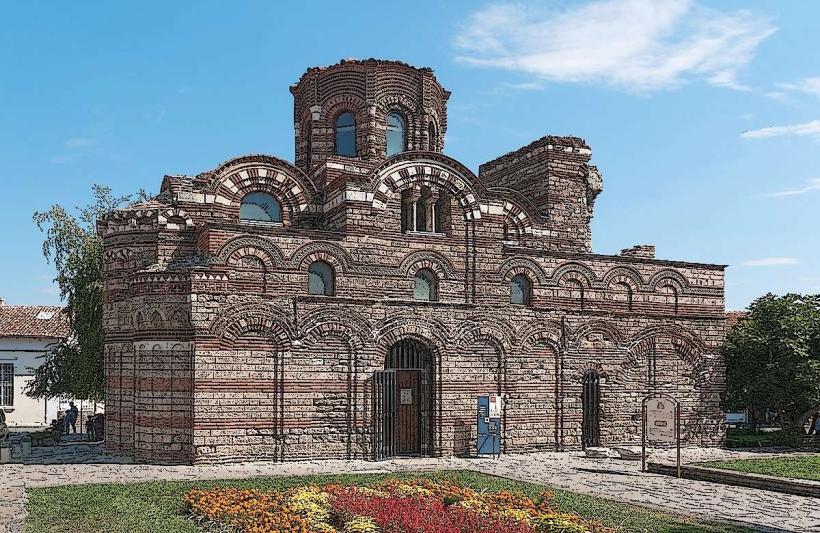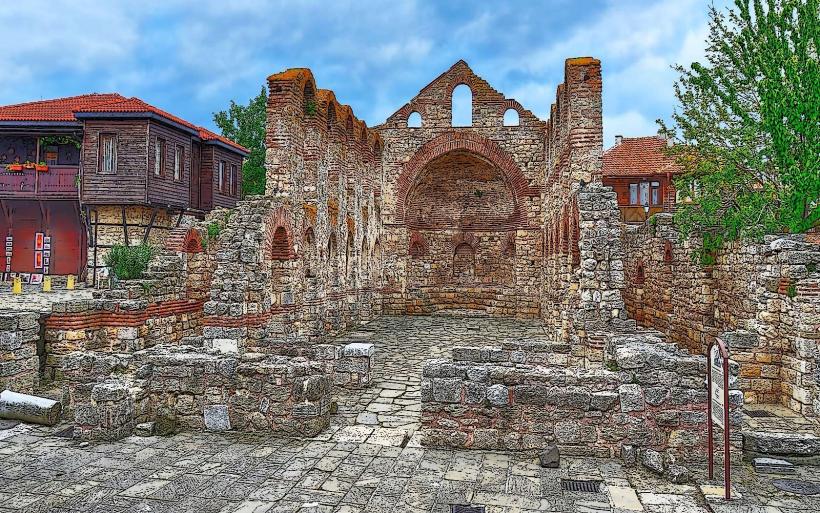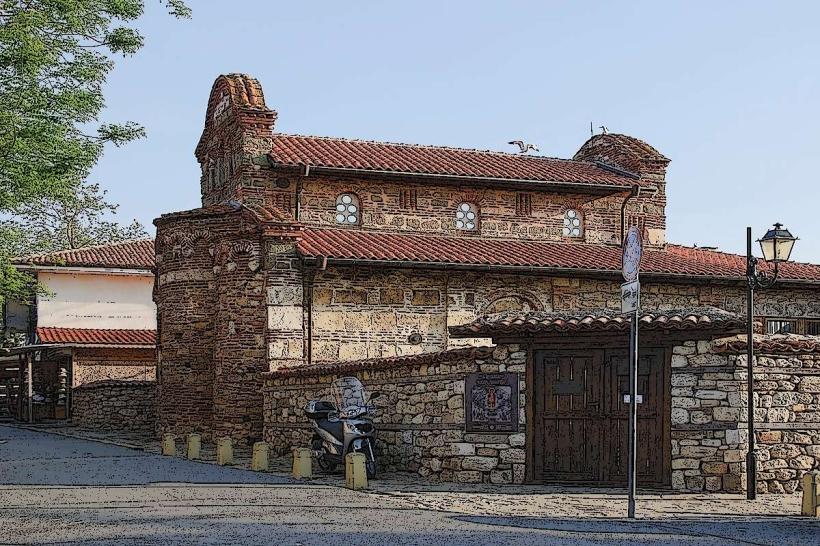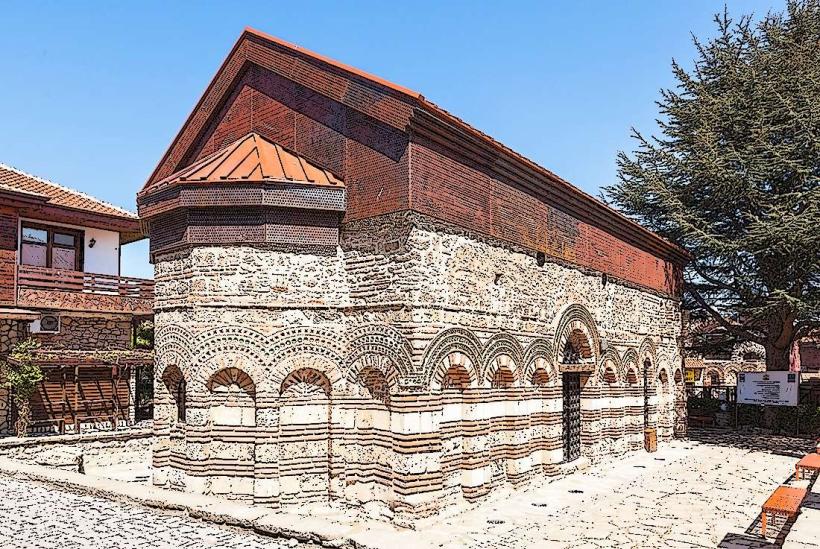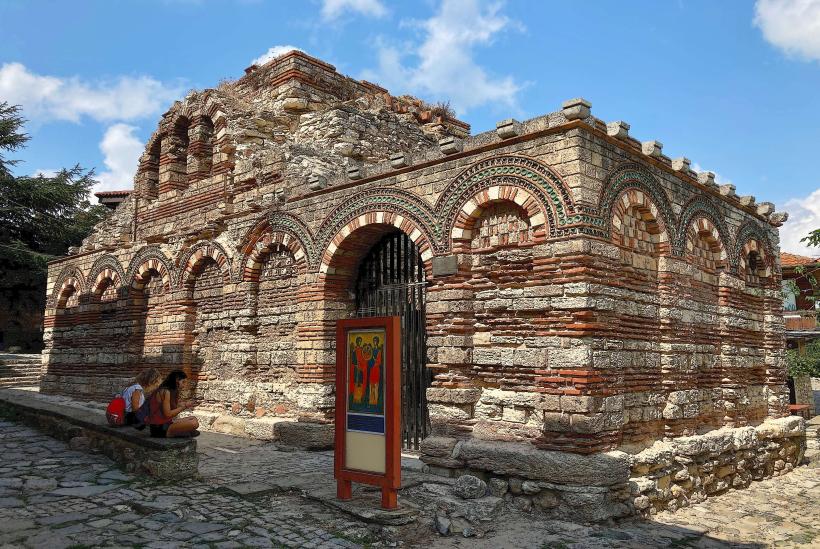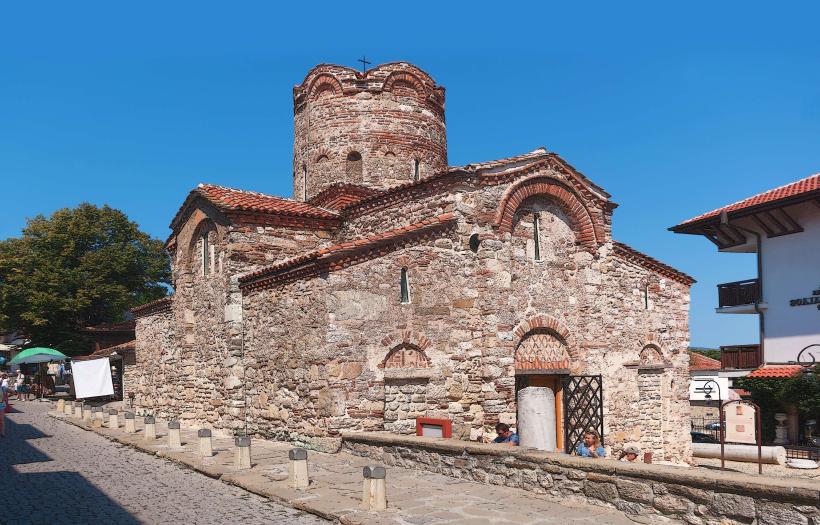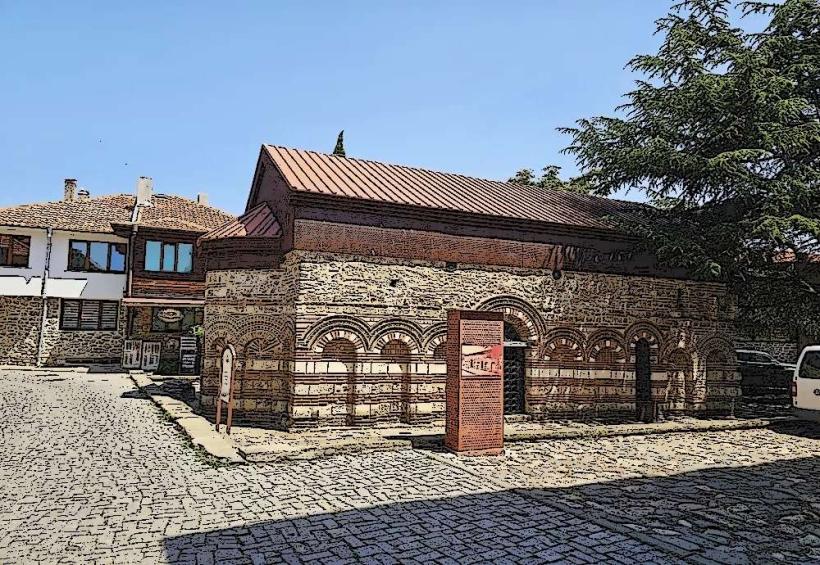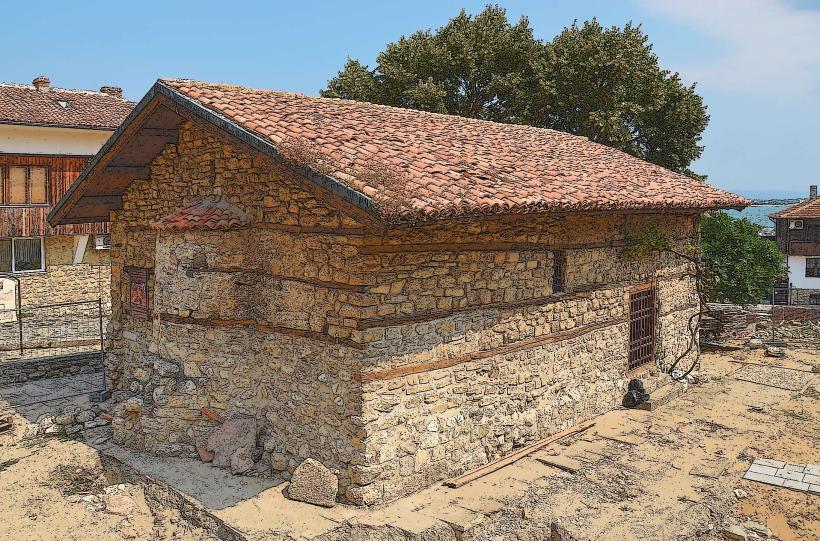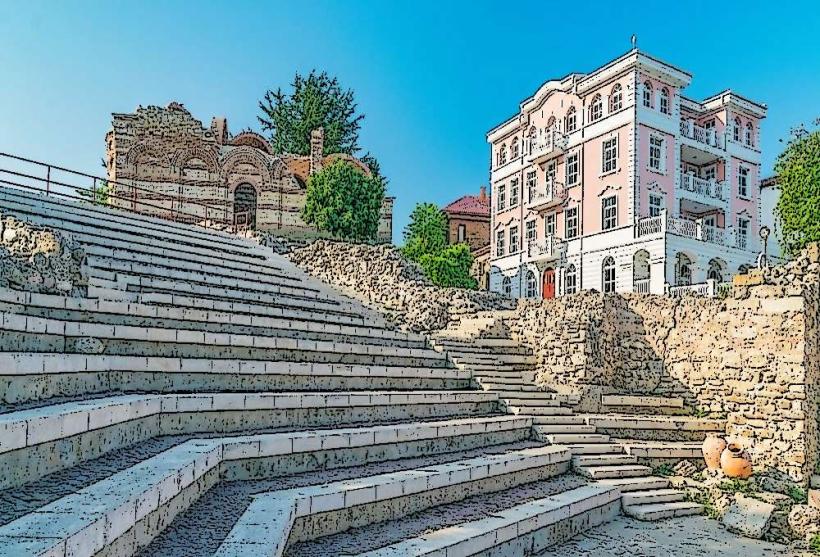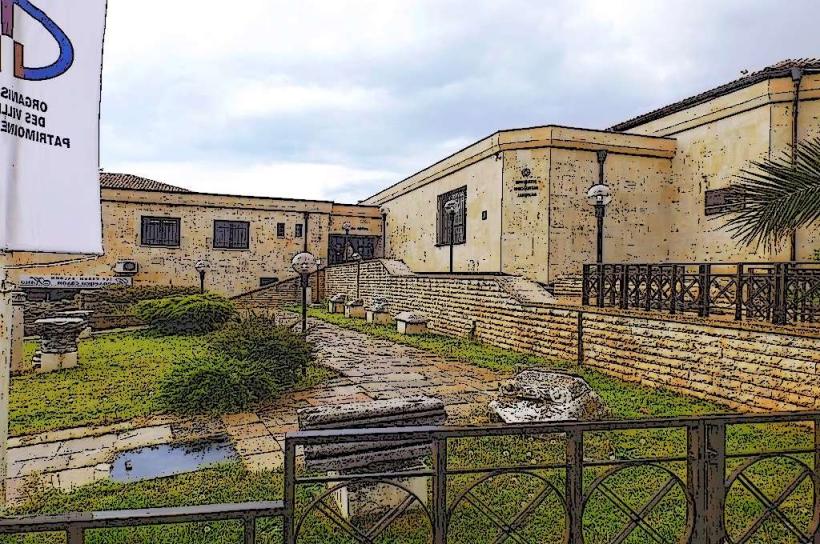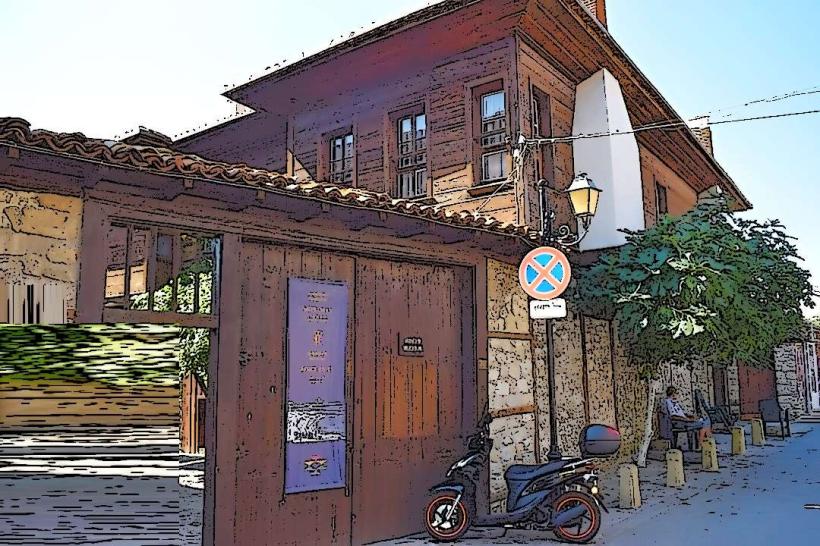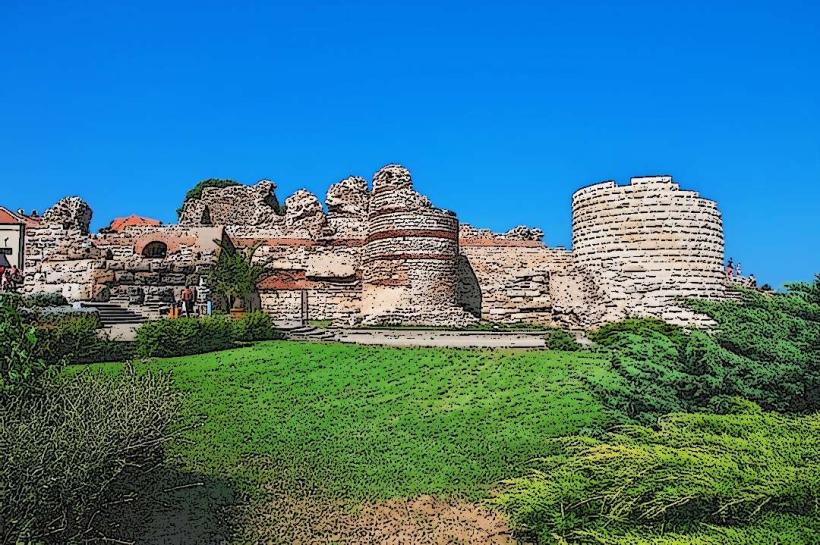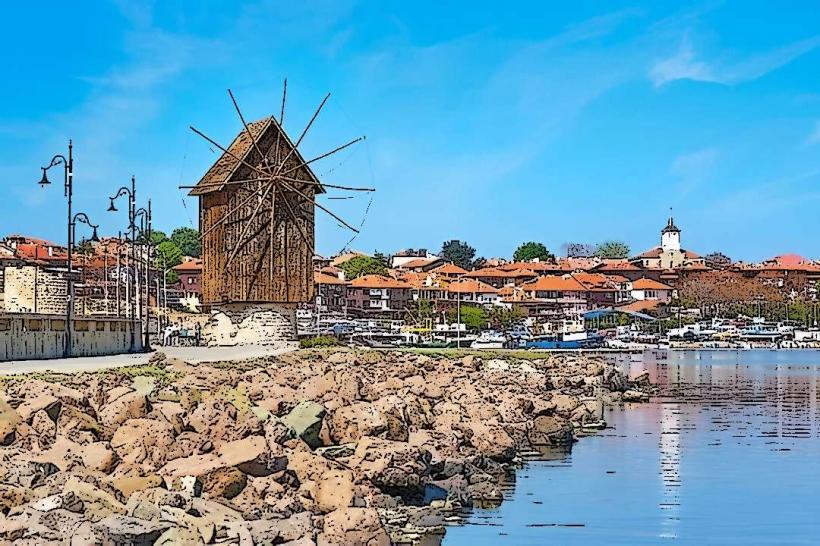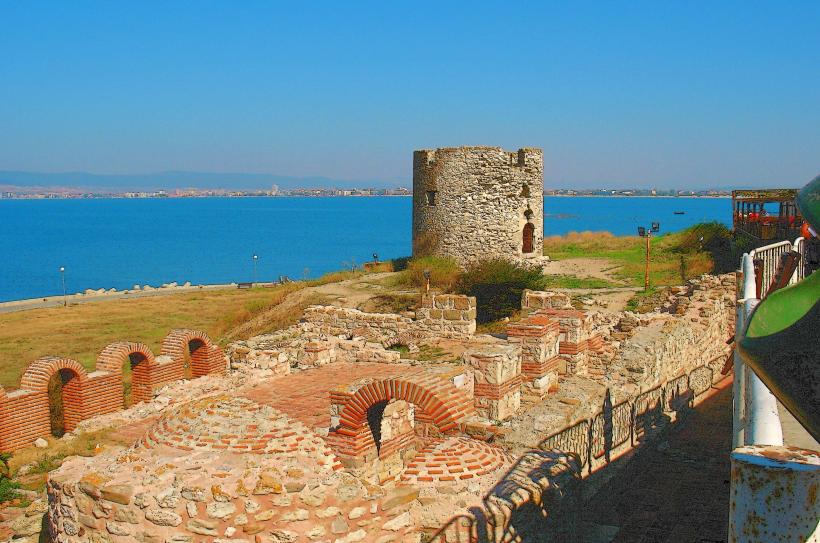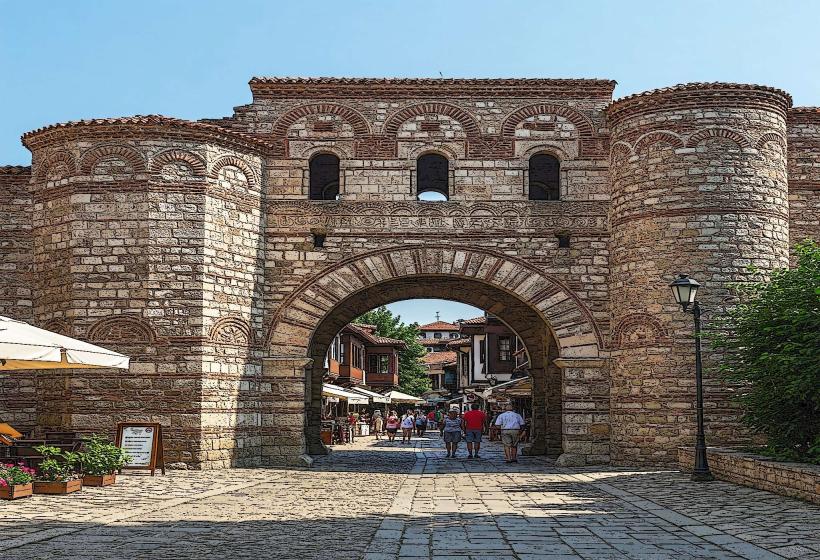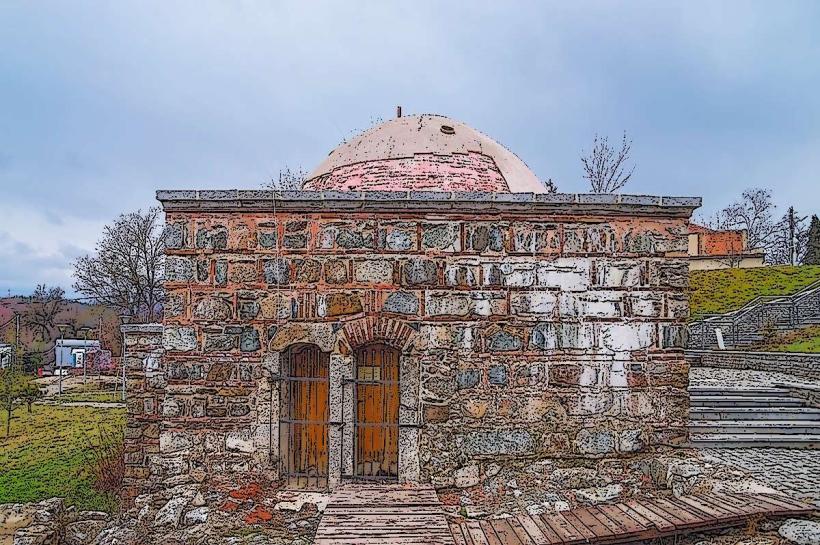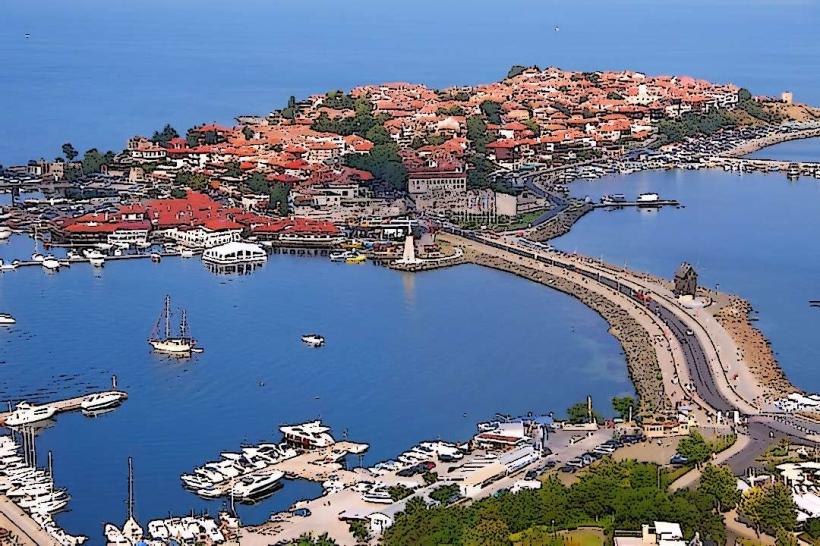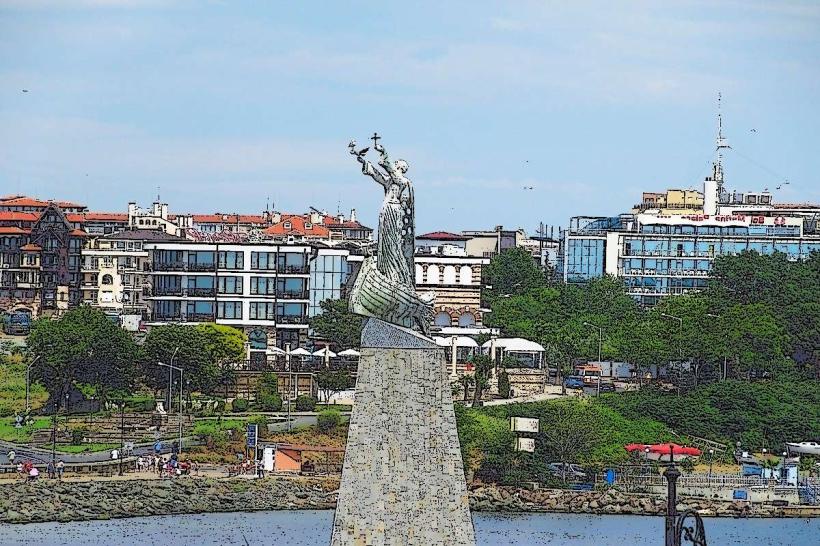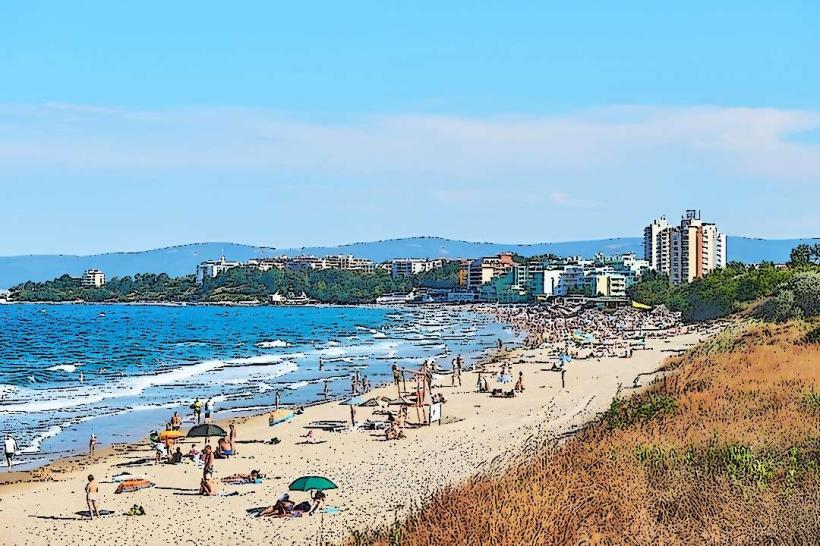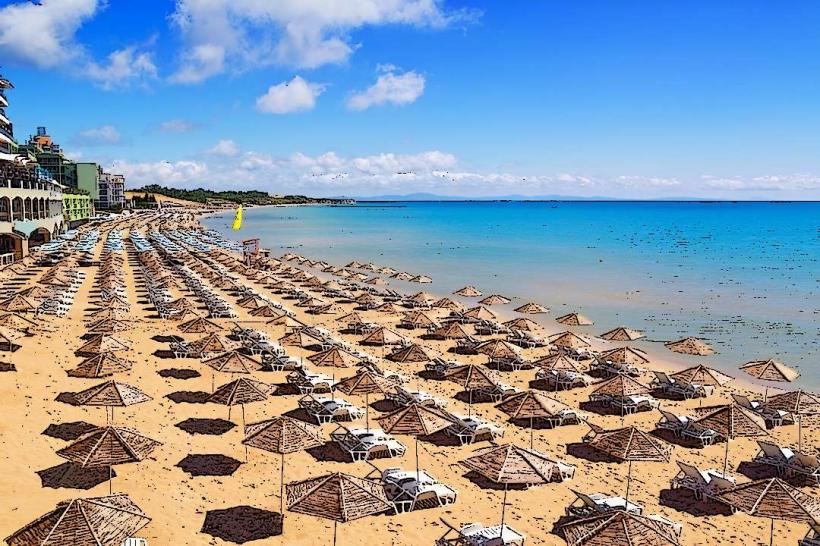Information
Landmark: Church of St. John AliturgetosCity: Nessebar
Country: Bulgaria
Continent: Europe
Church of St. John Aliturgetos, Nessebar, Bulgaria, Europe
The Church of St. John Aliturgetos is one of the most remarkable and architecturally exquisite medieval churches in Nessebar, Bulgaria. Although never fully consecrated for liturgical use-hence the name “Aliturgetos” (from Greek ἀλειτούργητος, meaning "not served" or "not consecrated")-this church is celebrated for its refined design, artistic decoration, and cultural significance. It is part of the Ancient City of Nessebar, a UNESCO World Heritage Site.
Historical Background
The Church of St. John Aliturgetos was built in the 14th century, during the time of the Second Bulgarian Empire.
It reflects the prosperity and artistic vibrancy of Nessebar in the late Middle Ages, a period when the city was an important religious and commercial center on the Black Sea coast.
The church was never consecrated, possibly because of a tragic event during its construction-likely the death of a worker or donor-which, according to Orthodox tradition, could prevent the church from being ritually purified for divine services.
Architectural Features
The Church of St. John Aliturgetos is widely regarded as one of the finest examples of medieval Bulgarian architecture, particularly for its harmonious proportions and elaborate decorative style.
Structure
The church follows a cruciform plan with three apses and a central dome (now lost).
It is built from alternating layers of stone and brick, with ceramic decorative elements incorporated into the façade-a hallmark of the medieval Balkan architectural school.
The dimensions are relatively large for a church in Nessebar: about 18 meters long and 10 meters wide.
Exterior Decoration
The façades are richly decorated with blind arcades, ornamental friezes, glazed green and red ceramic rosettes, and brick patterns.
The western façade, in particular, is a masterpiece of symmetry and visual rhythm, featuring deep arches and intricate brickwork.
The south entrance has an elegant arched portal framed by decorative pilasters and stone reliefs.
Interior
The interior of the church is now open to the sky, as the roof and dome collapsed, especially due to damage caused by the earthquake of 1913.
No frescoes survive, but it is assumed the church was once richly decorated on the inside, consistent with contemporary Orthodox churches.
Name and Liturgical Status
The name "Aliturgetos" directly reflects the church’s non-consecrated status.
Despite its architectural brilliance, it was never used for regular liturgical services.
Nevertheless, it may have been used for special civic or ceremonial purposes, or intended as a memorial structure.
Cultural and Heritage Importance
The Church of St. John Aliturgetos is a national architectural monument and a prominent landmark in Nessebar.
Its design represents the peak of church construction in medieval Nessebar and reflects Byzantine influence, especially from Constantinople, blended with Bulgarian artistic traditions.
Though in ruins, the church is often featured in art exhibitions, historical studies, and tourism media due to its beauty and mystery.
Current Use and Conservation
The structure was partially damaged in the 1913 earthquake, and although some elements were lost, much of its architectural detail remains intact.
It has undergone conservation and stabilization efforts to preserve its façades and prevent further deterioration.
Today, the site is open to the public as an architectural and historical monument.
It is occasionally used as a venue for cultural events, concerts, and photographic exhibitions, thanks to its unique atmosphere.
Summary
The Church of St. John Aliturgetos stands as a symbol of medieval Nessebar’s architectural and artistic achievements. Despite its unconventional history-never being consecrated for worship-it captures the imagination of historians, architects, and visitors alike. Its elegant design, decorative richness, and mysterious past make it one of the most captivating ruins on the Bulgarian Black Sea coast.

